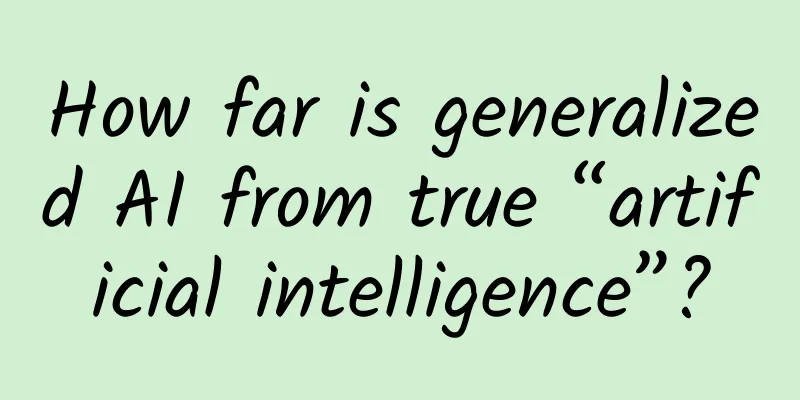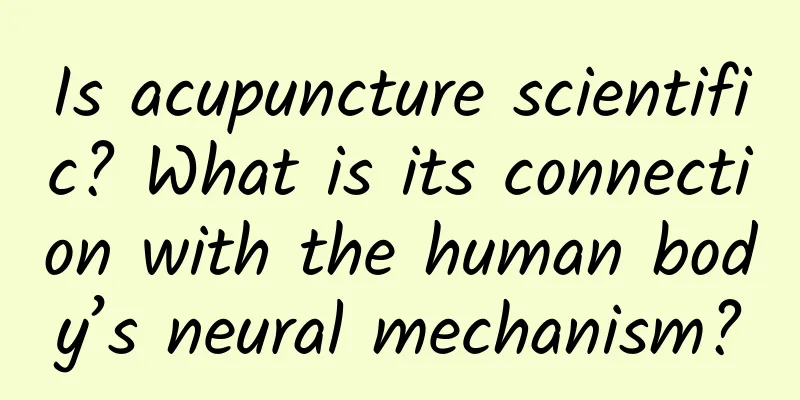How far is generalized AI from true “artificial intelligence”?

|
Once upon a time, AI (artificial intelligence) became the catchphrase of many companies. No matter what industry the company was in or what kind of company it was, it seemed that it would be out of date without AI. The media was filled with various AI reports every day, and we were tired of hearing them. Here we might as well take IBM, Google and Amazon, which are recognized as representatives of AI or technology or market in the industry, as examples to see what the technology and market of AI are like? IBM Watson: Suspected to be a gimmick, high commercialization costs and no real effect Speaking of Watson, this so-called AI system has occupied countless news headlines since it defeated human players in the American quiz show Jeopardy 6 years ago, and was the first to be commercialized (mainly used for cancer detection and prevention in the medical field). However, as time goes by, Watson has been repeatedly questioned by the industry recently. For example, the research report on IBM's artificial intelligence "Watson" released by James Kisner, an analyst at Wall Street investment bank Jefferies, stated that IBM's investment in Watson is unlikely to bring value to shareholders, and used cases to illustrate the widespread problems of IBM Watson. The case comes from the cooperation between IBM Watson and MD Anderson Cancer Center. After wasting $60 million on the Watson project, MD Anderson Cancer Center finally stopped cooperating with IBM in this regard and admitted that the technology was not yet ready for clinical use. The situation of MD Anderson Cancer Center is not an isolated case. Several entrepreneurs in the artificial intelligence field said that their clients in the financial services and biotech fields have had similar experiences when dealing with IBM.Compared with the analysis of Wall Street investment banks, in May this year, on CNBC's financial market observation column "Closing Bell", venture capitalist Chamath Palihapitiy made an even more shocking statement: "To be honest, Watson is a joke. I think IBM is very good at using sales and marketing methods to induce people with information asymmetry to pay." Roge Schank, founder of the American Cognitive Science Society, believes that Watson is not a cognitive computing system at all, and IBM is suspected of exaggerating and boasting. He made the following argument: In order to show Watson's extraordinary intelligence, IBM has placed Watson advertisements on popular TV shows since 2015. In the advertisement, the Watson program had a dialogue with rock soul Bob Dylan. In this regard, Schank pointed out that this advertisement just shows that Watson has no understanding of Dylan's works. Although words such as "time passes" often appear in Dylan's works, everyone familiar with Dylan's works knows that Dylan is a protest singer, and his songs are most concerned with themes such as civil rights and anti-war. However, Dylan's lyrics do not explicitly say "anti-war songs" or "civil rights movement". Watson only found "time passes" and "love fades" based on word frequency statistics, but did not really understand the real theme of Dylan's works. Google DeepMind: In addition to Go, the prospects of "Watson" in technology and commercialization are unclear . As for Google, last year AlphaGo relied on artificial intelligence to challenge the so-called most difficult human game Go and achieved great success, making the "deep learning" behind artificial intelligence widely known and also pushing DeepMind, an AI technology company previously acquired by Google, to the public. In this regard, as Rui Yong, former executive vice president of Microsoft Research Asia, said, there is still a long way to go to achieve true artificial intelligence. Today, almost all artificial intelligence comes from the big data of human beings in the past. No field of ability comes from self-awareness. Whether it is chess or Go, computers learn from human chess records in the past. If AlphaGo is asked to play checkers, it will be completely stupid. Even if the Go board is slightly modified, AlphaGo cannot resist, but humans have no problem. AlphaGo can beat Lee Sedol, who is in his thirties, but its learning ability is not as good as that of a five-year-old child. There is a big difference between the two. Compared with Watson, DeepMind has just entered the commercial field. Last July, Google announced that DeepMind had found a way to reduce the cooling power consumption of Google's data center by 2/5. Its algorithm first analyzes the operation logs of the data center to understand the task, and then optimizes the process through repeated simulation runs. Similarly, DeepMind has also entered the medical industry. Last November, the company won its first paid project and signed a five-year contract with the Royal Free London Hospital, an NHS public hospital, to process 1.7 million medical records for it. In addition, DeepMind has also obtained access to two databases of other London hospitals, namely, DeepMind used AI software to analyze about 1 million retinal scan reports and successfully found early signs of degenerative eye diseases, or used head and neck cancer images to let AI software learn to distinguish between healthy and cancerous tissues. From the commercialization of DeepMind mentioned above, similar to Watson, both need to obtain big data from the real world first. Even Google, which has a lot of data to mine, needs to obtain specific operational data when using AI and machine learning technology to improve systems such as hospitals, power grids and factories. The reason is simple. Without the background data provided by humans, even extremely simple challenges cannot be met by existing AI technology. Therefore, current AI technology is not actually "intelligent" and is not a panacea for solving problems. Speaking of data, before the man-machine war, DeepMind spent several years learning Go. Watson, who participated in the "Jeopardy" quiz, was input by R&D personnel with TB of data on quiz shows and natural language examples to help it understand the question-and-answer mode of this show. Only with such targeted and intensive "training" by humans can these machines perform so well. Seemingly simple applications such as the meeting arrangement assistant X.ai took several years to learn matters related to meeting arrangements before reaching a level that can be put into commercial use. And the process of their operation is more like big data analysis and output based on the improvement of computing power, far from creative reasoning. It is a well-known fact that in data processing (which is actually a high-speed calculation), the ability of machines has long surpassed that of humans. In this regard, some analysts say that DeepMind may not be able to generate a lot of revenue in the future simply by using AI programs to solve complex problems, but the useful information obtained by DeepMind AI software through data analysis is enough to make Google's huge investment in the original bid worthwhile. Seeing this, I believe that the industry should know the nature of DeepMind and the real purpose of Google under the banner of AI. Amazon Alexa: Still a fast information retrieval, it has failed in natural language recognition . Finally, let's look at Amazon. Its so-called AI is known to the industry with the hot sales of Echo speakers using Alexa's intelligent voice technology, and to some extent it also represents the level of Amazon's AI. But from its application, the scope of intelligent voice services is mostly in information retrieval, helping users obtain information. The vast majority of content is query-type information services that do not involve "reasoning" (understanding of the user's natural language). If the user asks questions above basic information, once it involves reasoning, not only Alexa, but almost all intelligent voice recognition (including Google and Microsoft) are powerless. Take Amazon's Alexa as an example. Last year, a six-year-old girl accidentally ordered toys worth $170 and a box of cookies weighing four pounds while chatting with Alexa, the built-in artificial intelligence voice assistant of Echo. Although the child's mother immediately canceled the order after receiving an order confirmation call from an unknown source, the order had already been processed, and a doll almost the same height as the child was delivered the next day. In the end, they reluctantly decided to donate the doll to the local children's hospital. Another example is that Amazon Alexa misheard instructions to provide adult content to children. That is, the child gave Amazon Alexa an instruction: "Alexa, please play 'Digger digger (a children's song)'." After that, Amazon's personal assistant identified it through an algorithm and actually thought that the child wanted to listen to erotic content. Later, the child's parents realized what had happened, but unfortunately they could no longer stop Alexa from continuing to play the sound. The above shows that the "difficulty" of natural language (real AI capabilities) is still far from being solved. Because different applications (question answering, sentiment analysis, machine translation, partial speech labeling) require different model architectures: strongly supervised memory neural network, tree-shaped long short memory network, bidirectional LSTM restricted random field (CRF), dynamic memory network, etc. Even if some very promising new ideas emerge in the research, the combination of design, engineering synthesis, and scalable dialogue systems with these ideas is still in a very complex state and is still far from commercial use. So when asked when we can communicate with digital assistants through natural language and get satisfactory answers, even top scientists like Andrew Ng cannot give a definite answer. Even for the highest level of neural network scientists, this technology still has many mysteries to be solved. There are many things that can only be improved through trial and error, and no one dares to guarantee what consequences a certain technical adjustment may have. Based on existing technologies and methods, this process will take about several years. It is under the instigation of these technology giants that AI is tending to generalize. According to statistics, by the end of last year, among the Fortune 500 companies, 180 announced that they would launch related artificial intelligence projects. Even some advertising research companies have boldly predicted that by 2020, artificial intelligence technology may appear in the promotion of almost all new technology products. According to Gartner, after studying 1,000 technology suppliers who claimed to use artificial intelligence, most of the so-called artificial intelligence technologies still use basic, rule-based machine learning and analysis technologies (such as IBM's Watson and Google's DeepMind mentioned above). These technologies have appeared and been used in the industry long before the concept of artificial intelligence became popular. More importantly, the capabilities of these technologies are far from being able to be called "artificial intelligence." Coinciding with the promulgation of the State Council's "New Generation Artificial Intelligence Development Plan", while demonstrating the Chinese government's forward-looking and determined determination to win the science and technology industry, we should also be wary of the current trend of AI generalization in the industry, especially in China, where every time a major favorable industrial policy or outline is introduced, there is always mud and sand. Don't let real AI be submerged in the generalization of AI. As a winner of Toutiao's Qingyun Plan and Baijiahao's Bai+ Plan, the 2019 Baidu Digital Author of the Year, the Baijiahao's Most Popular Author in the Technology Field, the 2019 Sogou Technology and Culture Author, and the 2021 Baijiahao Quarterly Influential Creator, he has won many awards, including the 2013 Sohu Best Industry Media Person, the 2015 China New Media Entrepreneurship Competition Beijing Third Place, the 2015 Guangmang Experience Award, the 2015 China New Media Entrepreneurship Competition Finals Third Place, and the 2018 Baidu Dynamic Annual Powerful Celebrity. |
<<: Complaints remain high, Mercedes-Benz GLC is caught in "fracture door"
Recommend
What is the difference between medium, medium, and medium-rare steaks? Finally figured it out...
Expert of this article: Liu Jingjing, PhD in Food...
What major events happened in the marketing circle in 2016?
2016 is about to end. What major events have take...
Why don’t users share your product on WeChat Moments?
The six factors of social currency, incentives, e...
The recall cost was 6 times the company's total assets. This Japanese supplier screwed Ford over badly.
The "death airbags" produced by Japanes...
Qoros Model Young SUV debuts at Guangzhou Auto Show: its last act before being abandoned by Chery?
At the 2017 Guangzhou Auto Show, Chery officially...
Phenomenal SUV! Model Y price cuts have just begun, from luxury to civilian, a crushing blow?
1. This report comprehensively discusses the Tesl...
WeChat friend deletion detection coming soon? Tencent releases patent for "one-way friend detection"
When a friend is deleted from WeChat, you will no...
Why do some advertisements make you want to move after watching them?
Have you seen ads like this: " U2 resin lens...
Meituan Dianping opens source front-end framework mpvue for developing mini-programs with Vue.js
Meituan Dianping recently open-sourced mpvue, a f...
Bai Zhiyong After Effects Full Case System Tutorial
: : : : : : : : : : : : : : : : : : : : : : : : : ...
Mobile product operation: 9 factors affecting ASO optimization
An app with a good ranking in search engines can ...
TuSimple delisted in the US, while China continues to increase its investment in autonomous driving, which will create a $500 billion market
After a series of setbacks, TuSimple, an autonomo...
Douyin short video APP competitive product analysis report!
background: As a new product manager of Tencent&#...
Twitter APP is now compatible with iOS 10’s rich notification features
As one of the important new features of iOS 10, t...
Are you annoyed by the APP rating pop-up window? Here is a solution
I believe that iOS users are familiar with APP ra...









